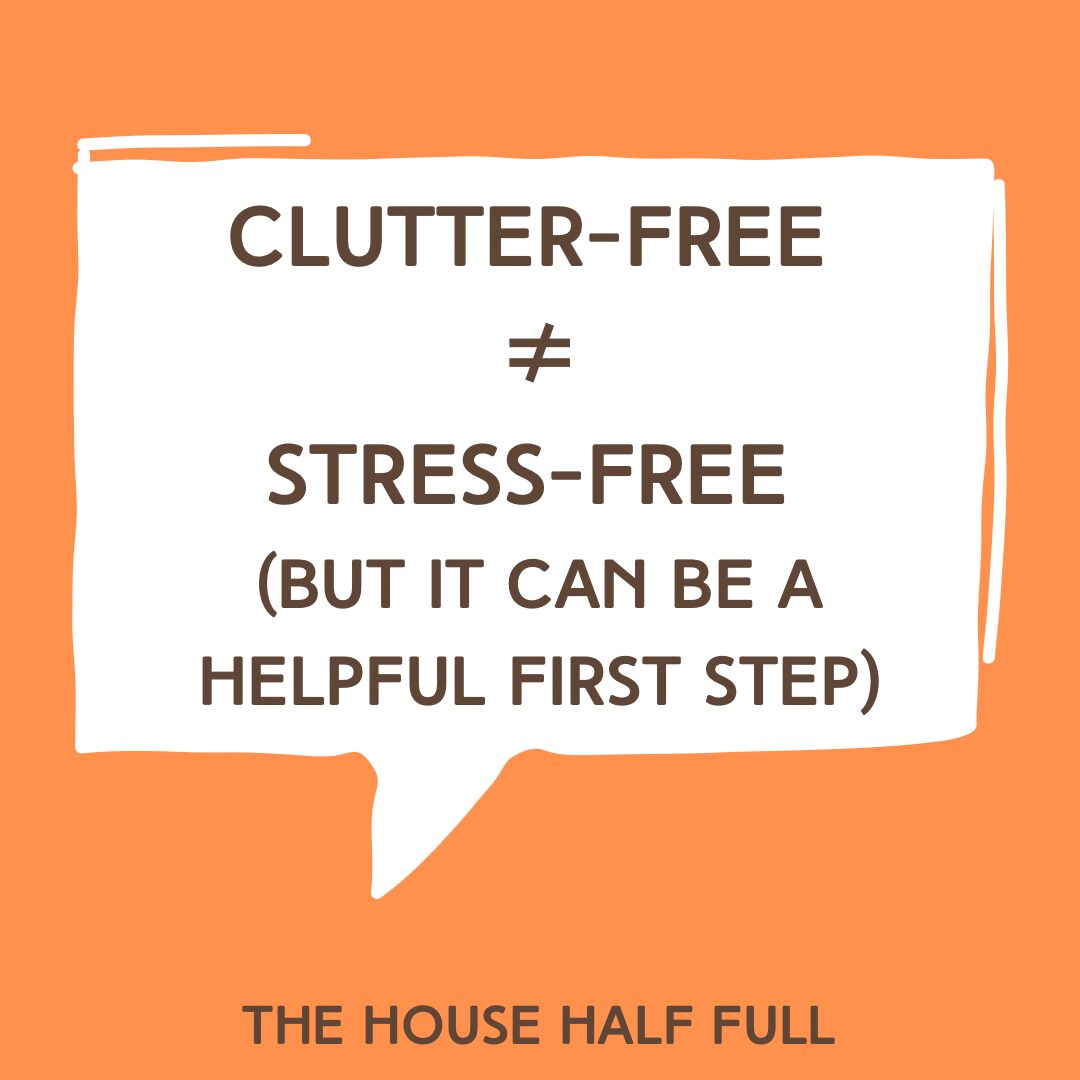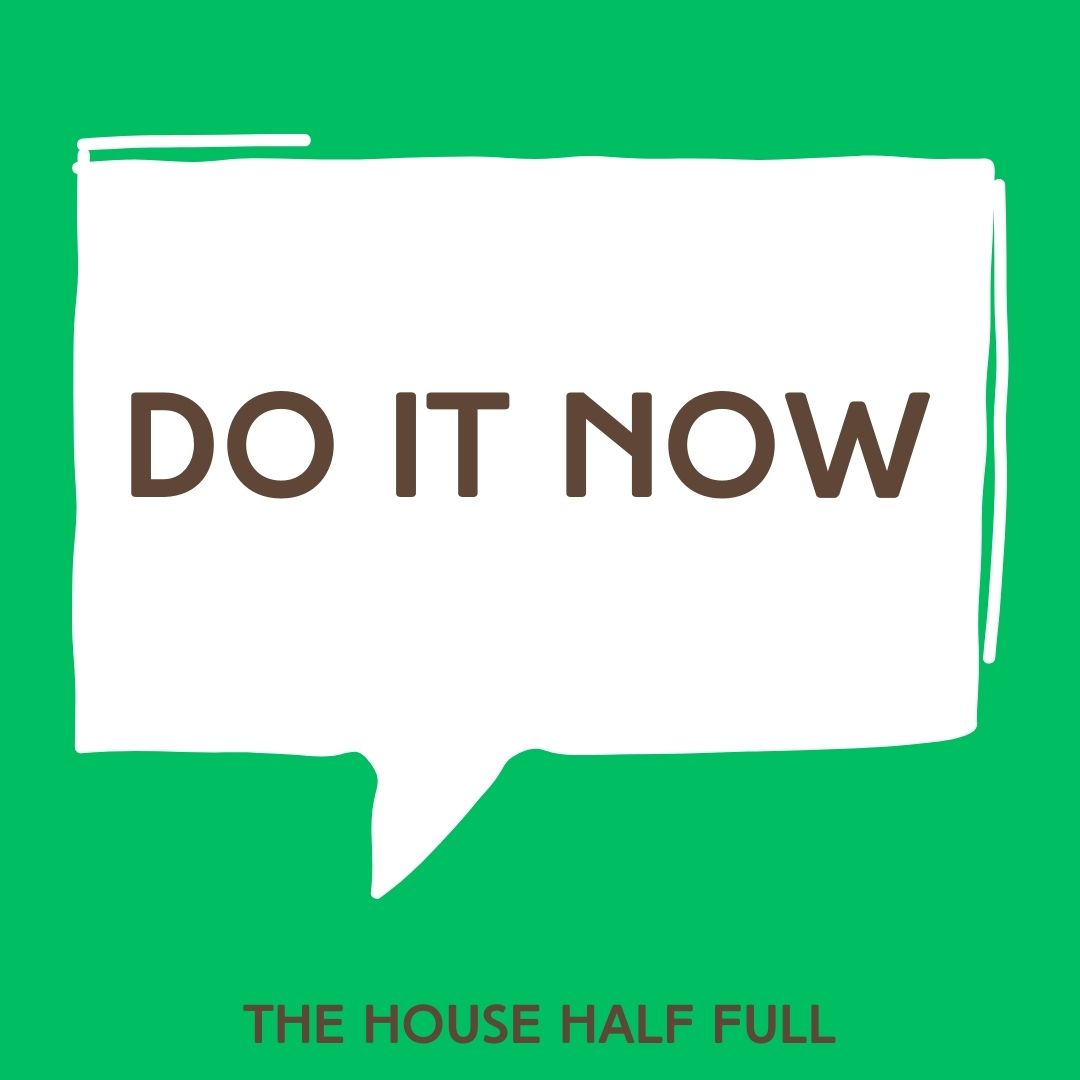Have you ever looked around your home or workplace and felt frustrated by the clutter around you? Stacks of paper on the counter, never-ending piles of laundry, and stuff covering every surface — it can feel so overwhelming!
You’re not alone. Clutter has become a major problem in our culture, and it’s even taking a toll on our emotional and mental health. You’ve felt it before, right? The impact clutter around you can have on your mind and wellbeing?
Let’s discuss clutter’s impact on our mental health — and how organization can help!
The Impact of Clutter
It’s not just your friendly neighborhood organizer who says clutter has an impact on your mental health — research shows it, too. Studies have found that when someone perceives their home as cluttered, their cortisol levels increase. What’s cortisol? The stress hormone.
The key word, however, is ‘perceive’. Clutter weighs on people differently. To some, a stack of paper on the kitchen counter is organized. To others, it’s a taunting pile of agitation.
Understanding how you relate to clutter is the first step in identifying its impact on your mental health.

5-Step Solution to Clutter
Once you better understand your clutter’s impact on your well-being, it’s time to decide what to do about it. This varies for everyone, but there are a few universal steps you can take.
- Find Your Biggest Stressor
As we’re talking about mental health, pinpoint the space in your home that stresses you the most. Find the low-hanging fruit that will impact your daily life, like the entryway you go in and out of each day or the dining room table that’s always covered.
- Start Small
Though you might find your overflowing garage or basement is your most stressful space, those are huge projects to start with. Instead, choose a smaller space that will allow you to see results right away. A few examples would be a kitchen drawer, your bedroom nightstand, or a single shelf.
- Set a Timer
You’d be amazed by how much better you can feel after 15 minutes of decluttering. If you find you have more stamina, feel free to keep going. But remember that something is better than nothing!
- Sort Your Items
Starting in your small space, go through the items and decide what can be kept, tossed, donated, or recycled. Even in a small space, you’ll be amazed by how much can go, and you’ll quickly begin to feel a little lighter.
- System Set-up
Systems sound like something big and complicated, but they can be simple, too! Hanging your keys on the same hook every single day is a system. Putting your shoes in the same spot when you get home is a system. Once you’ve sorted through the items in your small space, put them back in a way that works for your habits. Think about how you use the space and decide whether items belong there. If they do, contain them in a way that can help you find them when you need them next.
Support and Resources
As with anything that feels overwhelming, it can help tremendously to have someone at your side along the way. I would love to support you through your organizing journey, but I also understand that there’s a time and place for everything. I’m here when you’re ready to declutter and organize.
Some professional organizers specialize in chronic disorganization, which is frequently related to neurodivergence. If you struggle with ADHD, hoarding, or other challenges, you may find the Institute for Challenging Disorganization (ICD) a helpful resource.
If you or a loved one needs additional mental health support or services, please visit the National Institute of Mental Health website for the resources listed.
Each of these steps could be a blog post on its own, so remember that we’re just skimming the surface now. But remember, when it comes to feeling overwhelmed, it’s best to start small because some progress is better than none.
You wouldn’t expect mental health challenges to disappear overnight or within one week of treatment, so remember that it takes time to declutter and organize your home. Take everything one step at a time, because honestly, it’s the only way to do anything.
______________
Ready for some hands-on support? Contact me to learn how to work together.
(Full disclosure: This blog post was part of a copywriting package I won during some professional development I did with Business Simplicity Summit . I made a few changes to suit my style, but I want to thank Molly Winters Writing for the generous prize.)

